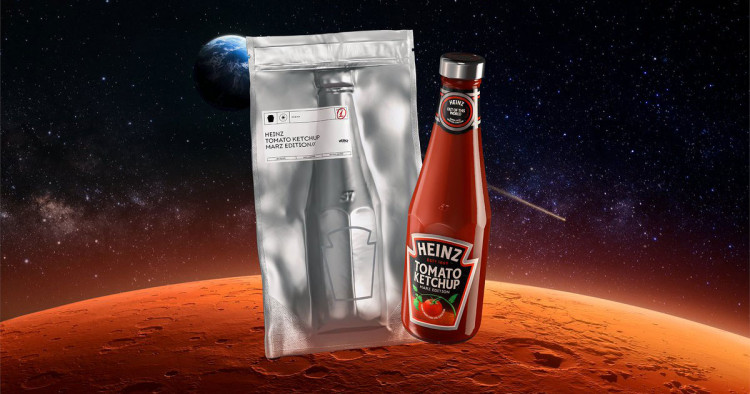Heinz announced its first "Marz Edition" ketchup, made with tomatoes grown in Mars-like conditions on Earth.
For nine months, a group of 14 astrobiologists from the Florida Institute of Technology's Aldrin Space Institute grew tomatoes in a controlled environment with soil, temperature, and water conditions identical to Mars.
"Before now, most efforts around discovering ways to grow in Martian-simulated conditions are short-term plant growth studies," biologist Andrew Palmer, who led the research, said.
"What this project has done is look at long-term food harvesting. Achieving a crop that is of a quality to become Heinz Tomato Ketchup was the dream result and we achieved it."
The results of the work with Heinz (which explains the "z" in Mars) also reflect strategies for increasing food production in difficult conditions on Earth.
Palmer and a group of more than a dozen students, scientists, and technicians worked in the Red House at Florida Tech, a greenhouse. The Red House was created to mimic the conditions that humanity would confront if they attempted to farm on Mars.
They used 7,800 pounds of analog Martian regolith - soil from the Mohave Desert that resembles many of the features of true Martian soil - and LED lights to recreate sunshine on Mars. Temperature control was also strictly enforced, as irrigation on a regular basis.
After a successful trial project with 30 tomato plants, the team expanded to a larger project with 450 tomato plants in individual buckets, all while working closely with Heinz.
Former NASA astronaut Mike Massimino told CNN that while ketchup made from regular Earth tomatoes has been a standard condiment in space for spicing up dehydrated meals, the Marz Edition variety has far-reaching ramifications.
The two-year-in-the-making project illustrates the viability of long-term food production on Mars.
On Nov. 10 at 10 a.m., the research team and Massimino will be the first to taste the final product. ET. You may follow the historic event on Heinz's social media platforms, including Twitter and Instagram.
NASA has also experimented with plant harvesting in orbit to supply more nutrients for astronauts' freeze-dried food.
The International Space Station recently threw a taco party following a successful harvest of the first chile peppers in space.
The Martian ketchup isn't for sale, but if you ever find yourself on Mars, that's one item you won't have to bring with you.






